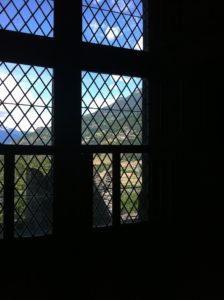The Last of the Wvorgi
This story contains some mature themes to do with human trafficking and is not suited for younger audiences.
Editor’s Note
The crooked flats of Arondzei, the Village on the Steppe, were a series of plains carved across the northern ridge of the Alt’Rhazia Range, stacked together like neat vertical zigzags. Atop each shelf were shaggy, lush grasslands, the interweaving roots of the grass as thick as handwoven rugs, dotted here and there by small, modest homes of earth and stone, their roofs near indistinguishable from their surroundings, covered as they were in the same grass-woven sod. At a distance, the town was all but invisible, which was how the villagers liked it.
Then, one night, the window of the old mage’s tower was illuminated by a small candle. The overgrown dwelling had been empty for decades, its stone walls heavy with dirt and snaked over with vines. Creeping weeds and climbing foliage all but obscured the front of the building from view. If not for the candle in the window, the place would be all but invisible to the undiscerning eye.
Yet, the next day, the weeds and vines were cleared away. Not long after that, a new frame was set in the doorway, and a fence went up, creating a small corral for a cadre of goats. By then it was clear to the villagers that whomever had traveled to this place had intentions to stay.
Brodin, a young man from the village, elected himself spokesman to approach the dwelling. The rest of the village huddled in a group fifteen feet away or so, muttering amongst themselves as Brodin approached the building to find out whether the new arrival was friend or foe, warmonger or deserter. Striding to the door, his back ramrod straight, Brodin knocked brusquely.
“I come to discuss your intentions in this village,” Brodin said loudly, loud enough for the others watching to hear.
The door opened. The person inside could not be seen from where the villagers stood, but after Brodin spoke, the door opened a bit wider to admit him. With a brief hesitation and backward glance at those gathered behind him, Brodin ducked his head and went in.
Not ten minutes later he came out, his face as gray and heavy as autumnal storm clouds. Straight to his own home he went, where he closed the shutters and locked the door. From the secret place above the transom, he pulled parchroot beer and drank it late into the evening. When asked the next day, he told the other villagers the new resident had the right to stay but elaborated no further. Continue reading “The Last of the Wvorgi”

